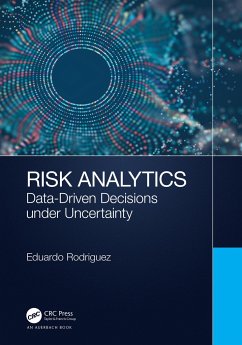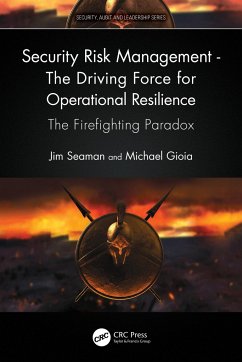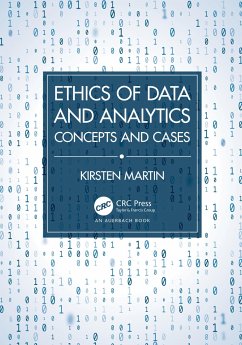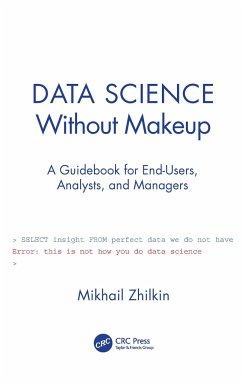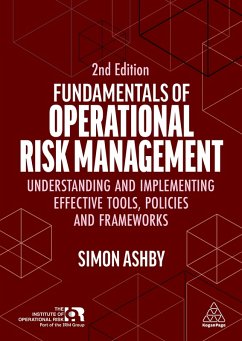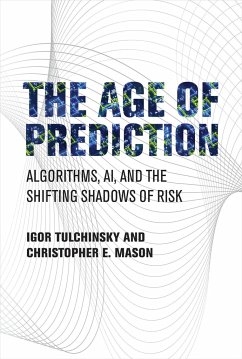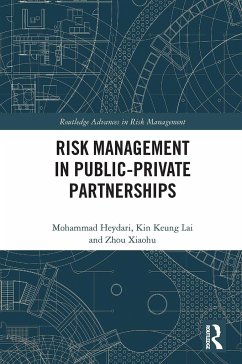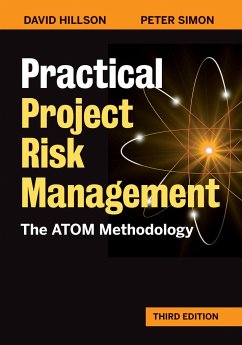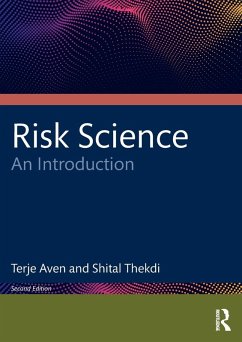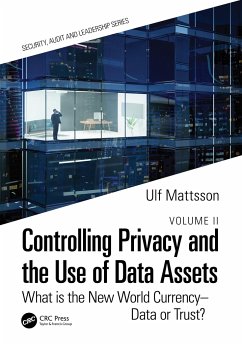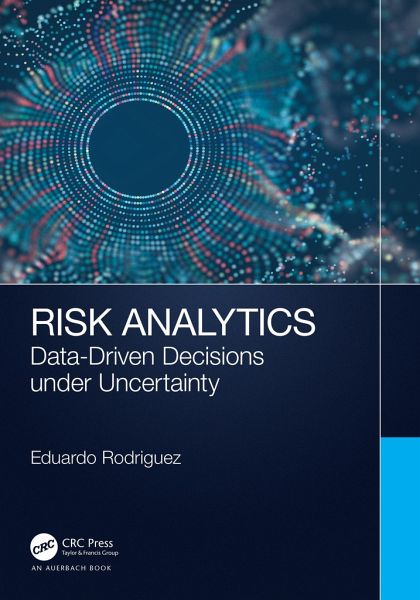
Risk Analytics
Data-Driven Decisions under Uncertainty
Versandkostenfrei!
Versandfertig in 6-10 Tagen
85,99 €
inkl. MwSt.
Weitere Ausgaben:

PAYBACK Punkte
43 °P sammeln!
The 2022 World Economic Forum surveyed 1,000 experts and leaders who indicated their risk perception that the earth's conditions for humans are a main concern in the next 10 years. This means environmental risks are a priority to study in a formal way. At the same time, innovation risks are present in theminds of leaders, newknowledge brings new risk, and the adaptation and adoption of risk knowledge is required to better understand the causes and effects can have on technological risks. These opportunities require not only adopting new ways of managing and controlling emerging processes for s...
The 2022 World Economic Forum surveyed 1,000 experts and leaders who indicated their risk perception that the earth's conditions for humans are a main concern in the next 10 years. This means environmental risks are a priority to study in a formal way. At the same time, innovation risks are present in theminds of leaders, newknowledge brings new risk, and the adaptation and adoption of risk knowledge is required to better understand the causes and effects can have on technological risks. These opportunities require not only adopting new ways of managing and controlling emerging processes for society and business, but also adapting organizations to changes and managing new risks.
Risk Analytics: Data-Driven Decisions Under Uncertainty introduces a way to analyze and design a risk analytics system (RAS) that integrates multiple approaches to risk analytics to deal with diverse types of data and problems. A risk analytics system is a hybrid system where human and artificial intelligence interact with a data gathering and selection process that uses multiple sources to the delivery of guidelines to make decisions that include humans and machines. The RAS system is an integration of components, such as data architecture with diverse data, and a risk analytics process and modeling process to obtain knowledge and then determine actions through the new knowledge that was obtained. The use of data analytics is not only connected to risk modeling and its implementation, but also to the development of the actionable knowledge that can be represented by text in documents to define and share explicit knowledge and guidelines in the organization for strategy implementation.
This book moves from a review of data to the concepts of a RAS. It reviews RAS system components required to support the creation of competitive advantage in organizations through risk analytics. Written for executives, analytics professionals, risk management professionals, strategy professionals, and postgraduate students, this book shows a way to implement the analytics process to develop a risk management practice that creates an adaptive competitive advantage under uncertainty.
Risk Analytics: Data-Driven Decisions Under Uncertainty introduces a way to analyze and design a risk analytics system (RAS) that integrates multiple approaches to risk analytics to deal with diverse types of data and problems. A risk analytics system is a hybrid system where human and artificial intelligence interact with a data gathering and selection process that uses multiple sources to the delivery of guidelines to make decisions that include humans and machines. The RAS system is an integration of components, such as data architecture with diverse data, and a risk analytics process and modeling process to obtain knowledge and then determine actions through the new knowledge that was obtained. The use of data analytics is not only connected to risk modeling and its implementation, but also to the development of the actionable knowledge that can be represented by text in documents to define and share explicit knowledge and guidelines in the organization for strategy implementation.
This book moves from a review of data to the concepts of a RAS. It reviews RAS system components required to support the creation of competitive advantage in organizations through risk analytics. Written for executives, analytics professionals, risk management professionals, strategy professionals, and postgraduate students, this book shows a way to implement the analytics process to develop a risk management practice that creates an adaptive competitive advantage under uncertainty.





